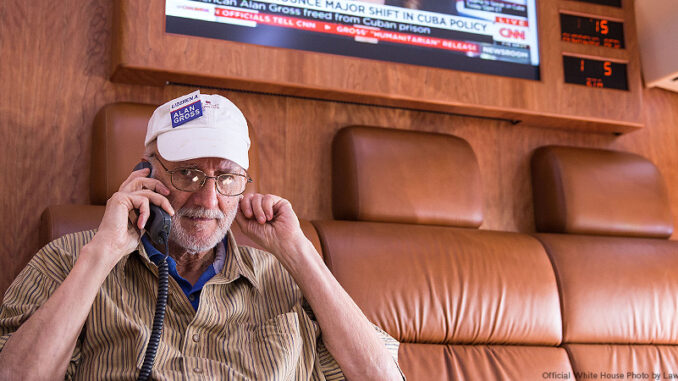
Cuba is a country made up of islands located around 90 miles south of the tip of Florida. While it is a close neighbor of the U.S., relations between the countries have been non-existent for more than 50 years due to political and economic clashes. Last month, President Obama announced new foreign policy shifts toward “normalizing” relations with the Latin American country. In order to understand what this means, we thought we’d take a look back into this long and complicated conflict.
The Past

On one of his four voyages across the Atlantic Ocean in the late 1400s, European explorer Christopher Columbus claimed Cuba on behalf of Spain–which means it became “colonized.” Because of its close proximity to the U.S., the island served as a center of trade (sugar, tobacco, and slaves), making it very lucrative for American businesses by the 1800s. In an attempt to keep Europe from further colonizing the New World, the young United States government enacted the Monroe Doctrine in 1828, which increased U.S. influence in Cuba. In the meantime, Cuban rebels in opposition to Spain engage in an open revolt in the late 1800s. This ultimately leads the U.S. into the Spanish-American War where they are victorious and take control of Cuba through the Treaty of Paris, but allow Cuba to maintain themselves as a “self-governing colony” through agreements like the Platt Amendment and the Cuban-American Treaty. For the next half-century, Cuba prospered through U.S. corporate control, but it also became a haven for illegal activities like gambling and prostitution.
In the early 1950s, Fidel Castro attempted to overthrow the government and was imprisoned. Once released, he lead rebels in the Cuban Revolution and successfully overthrew dictator Fulgencio Batista in 1959. Once in power, Castro attempted a relationship with the US, but his socialist agenda was incompatible with our national policies, which lead to trade restrictions still in place today. In response, Castro became an ally of the Soviets, which, because of our involvement in the Cold War, made Cuba an enemy. A failed attempt by the U.S. to help a counterrevolutionary overthrow Castro (called the Bay of Pigs), lead to the Cuban Missile Crisis between the U.S. and the Soviet Union. Since then, Cuba has been considered a “state sponsor of terrorism.”
Present
The following are considered the major restrictions put in place in 1959 that remain today:
- An embargo (official ban) on banking transactions and trade
- Travel ban for U.S. citizens and residents
- No U.S. embassy
- No telecommunications infrastructure
Fidel Castro remained in power until 2008, when his deteriorating health caused him to transfer control to his brother, Raul, who leads the country today. Raul has publicly announced on many occasions hit desire to engage in a “respectful dialogue” with the U.S. government. He and President Obama publicly shook hands at Nelson Mandela’s funeral, which marked the first public gesture between the two countries in more than 50 years.
Pope Francis, who assumed his position in 2013, has played a big part in brokering a deal between Cuba and the U.S. Francis, who is the first Latin American pope, made an appeal to the leaders of both countries to overcome the difficulties of their shared history in the interest of its citizens.
“To the Cuban people, America extends a hand of friendship.” —President Obama Watch the full video. #CubaPolicy http://t.co/Qrzp5zODZk
— The White House (@WhiteHouse) December 17, 2014
Future
One of the first moves in re-establishing diplomatic relations with Cuba was a “prisoner swap.” American Alan Gross, jailed in 2011 for attempting to bring Internet services to the Cuban Jewish community, was released in exchange for the release of the remaining three of the “Cuban 5,” held imprisoned in America on espionage changes.
There are also plans to open an embassy in the capital city of Havana, and begin lifting travel restrictions so that U.S. citizens may soon be able to engage in tourism. John Kerry publicly said he was looking forward to being the first Secretary of State to travel to Cuba in half a century. But not everyone is happy about this deal. Republicans in particular believe the policy doesn’t do enough to appropriately address Cuba’s long history of corruption and human rights violations.
Related Links
The White House Web site has compiled a individual page highlighting President Obama’s actions on the changing relations with Cuba. Visit the site and learn more background.
